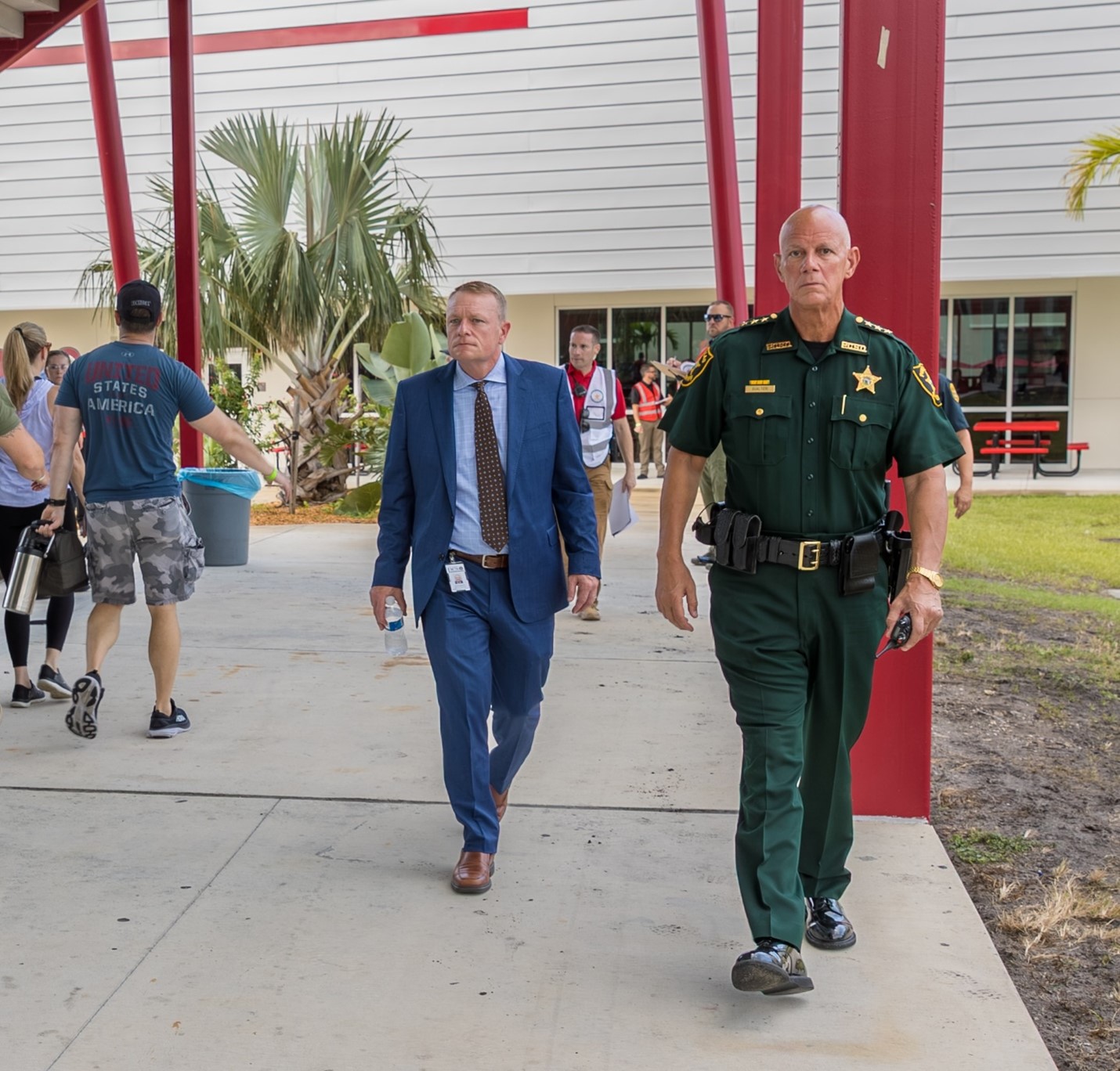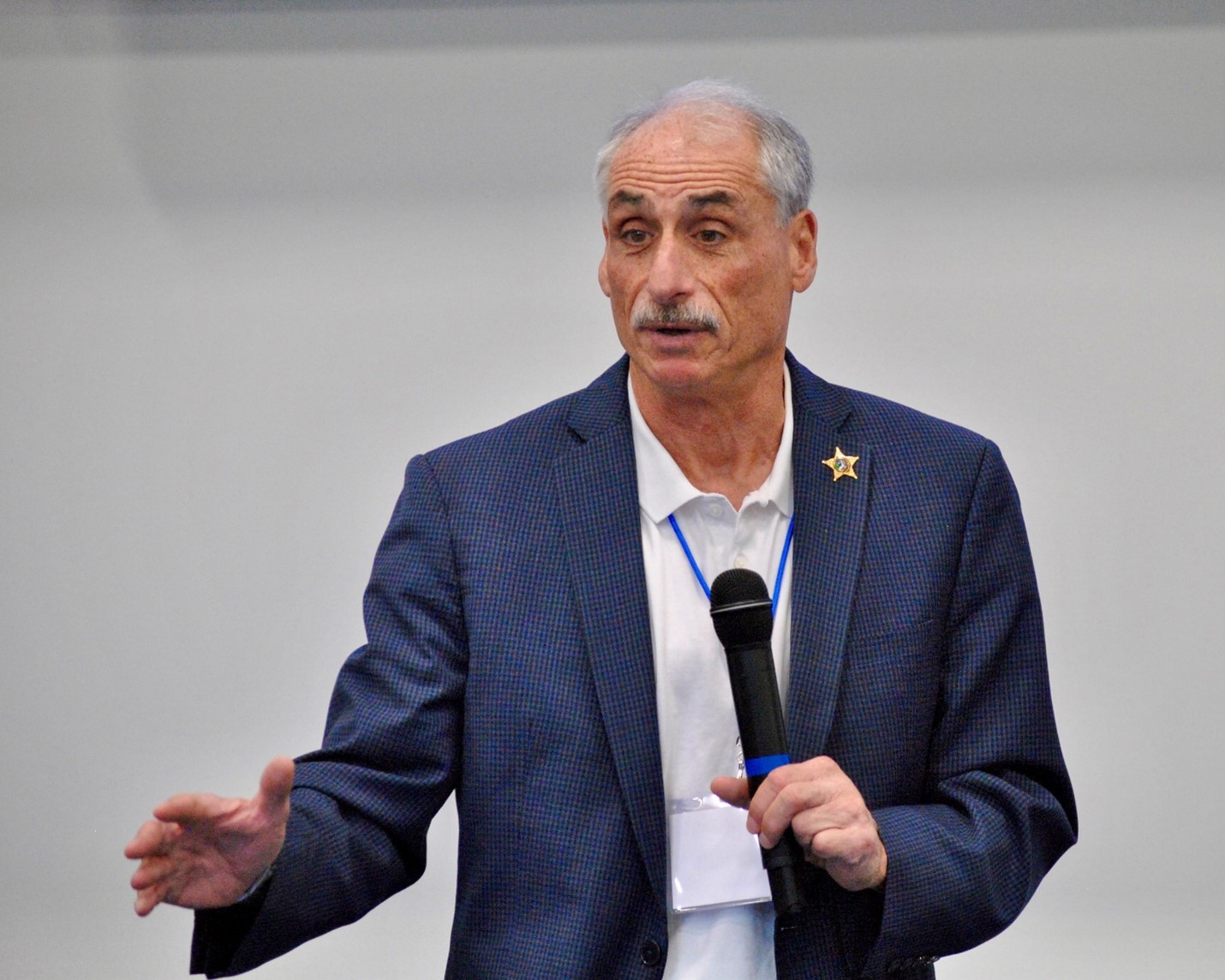|
August 23, 2025 Florida sheriffs discuss their role in immigration enforcement and the need for federal legislation
PERF members, As I’ve previously written, I think federal immigration enforcement efforts should focus on violent criminals. To hear how this issue is playing out in Florida, this week I spoke with three Florida sheriffs—Pinellas County Sheriff Bob Gualtieri, Polk County Sheriff Grady Judd, and Volusia County Sheriff Michael Chitwood. In February, Florida passed two bills pertaining to immigration enforcement. Senate Bill 2-C requires local officials to cooperate with federal immigration enforcement efforts, requires all sheriffs to enter into an agreement with ICE to participate in the agency’s 287(g) program, and sets aside $250 million in grants to support local law enforcement agencies’ cooperation and coordination with federal immigration enforcement. Senate Bill 4-C would prohibit people who have entered the United States illegally from entering the state, but the measure was blocked by a federal judge in April and the judge’s order was left in place by the Supreme Court last month. Chuck Wexler: How is the immigration issue affecting Florida sheriffs? Sheriff Bob Gualtieri: We are definitely at the forefront of the immigration dilemma, because we have very, very robust laws in Florida that require all sheriffs’ offices, police departments, and county jails to fully cooperate with the immigration effort and define what that means. I think most everybody can agree that if people are here illegally and they are committing crime, they need to go. If they’re here illegally and meet objective criteria—they’re a national security threat or a public safety threat—they need to go. I think if they have been through the immigration system, they’ve had their day in court, and they have a final order of removal issued by an immigration judge, they need to go. And the last category is people removed previously who keep come back for a second or third time. So how do we balance what we do and support ICE? Because we’re not here to be ICE; we’re here to support ICE. How do we balance that with community relationships, community support, and community support for people who have been here for 10, 15, or 20 years, go to church on Sunday, have kids in school, pay taxes, are just going about their business, living their lives, and have assimilated into their communities. So how do we balance that and still be highly effective in meeting our statutory obligation and, I think, doing what’s right by the community. Because nobody in the community wants somebody who’s committing crime. Even people who are here illegally don’t want to be victims. So I think that’s one of the biggest balances we have. We have 67 county jails in Florida. All 67 are required to honor the immigration detainers. We have what we call “warrant service officers” in all those jails, and the most robust place we can help ICE is to turn people over to them from the jails we are working in Florida now.
Sheriff Gualtieri (right). Source: X/Pinellas County Sheriff’s Office One of the greatest challenges we have is with deputies and officers knowing what they’re doing when they only have civil immigration charges, not state criminal charges. There are so many people they come in contact with and just because you’re here illegally doesn’t mean you’re removable. So we need to make sure that our people who are out there acting in this capacity don’t commit Fourth Amendment violations or law violations. So the best place I think we can work with ICE is on joint operations. And again, let us help them, but not be them. Sheriff Grady Judd: Our governor, Ron DeSantis, wanted to be on the leading edge of setting the model for other states to emulate to help ICE, so he called a special legislative session of the House and the Senate prior to this year’s legislative session. All law enforcement agencies in the state of Florida are required to cooperate with ICE, and a failure to do so can end up in removal from office—not just law enforcement officers but city or county officials as well. The frustrating part of this entire process is that ICE is woefully understaffed and has very little capacity to remove these folks. The illustration I’ve given is that we in Florida are currently driving around the highway at 20 miles an hour when it comes to dealing with those here illegally who are dangerous, violent, have removal orders, and need to be taken into custody, and it is overwhelming the system. We haven’t fully trained the deputies or city police officers. So you can imagine that when we go from 20 miles an hour to only 55, ICE cannot keep up. It will totally fail, because there is no capacity. We’re a force multiplier for ICE, and we are already overwhelming them at 20 miles an hour. President Trump talks about the “worst first,” and that’s who we’ve prioritized—those who are violent, dangerous, and commit crime. We’ve heard there are 1.4 or 1.5 million people here with deportation orders. To successfully get them removed from this country is an overwhelming task for everyone. Add the lack of capacity, and we’re in a crisis. We’re just dealing with those we come in contact with during our normal course of business. We’re not involved in any ICE raids, but we are coming across so very many of these folks who are here illegally and need to be removed during our normal course of traffic stops and answering fights, burglaries, and robberies.
Sheriff Judd. Source: X/Polk County Sheriff’s Office Sheriff Michael Chitwood: I have to give Bob [Gualtieri] kudos, because the first time they tried to do 287(g), Bob was the one who pushed for ICE setting up in our jails. In the jails, you’re going to get what you need to get. We’re not participating in anything like going into a Home Depot parking lot. We’re doing our normal course of business. ICE’s system and the way they manage is very antiquated, and it’s been very frustrating for sheriffs who are on the cutting edge. And we don’t always get a call back. It’s not about racial profiling. It’s not about going after people who have been here 20 years and have never been a problem. It’s the ones in those categories Bob named. And I don’t think there’s another state that’s taken this as seriously as we have.
Sheriff Chitwood. Source: File photo Wexler: Thank you all. What federal legislation do you think is needed? Because I can’t see deporting everyone here illegally, including those who have been here for 20 years working and otherwise contributing to their communities. Sheriff Judd: I think you’re right. There are a lot of people who came across the border illegally. They brought their children and their family with them. They go to church on Sunday. Their children are in school. They work very hard. They’re family oriented. They don’t cause any problems. And they do work that no one else wants to do. They espouse the American ideals, but they get washed away in this bigger conversation. It is absolutely, unequivocally, physically impossible to deport 10 million or 20 million people. You can’t do that. The ones we’re dealing with need to go now. But we could put a plan together to say, “Look, you’re going to sign this waiver, and if you don’t accomplish these things in the first five years—stay employed, your kids are in school, pay your taxes, and prepare to be a citizen of the United States—you agree to self-deport, or for us to deport you without any further due process. Then, if you get through that five years, in the next five years you have to do the next series of things so that you’re a citizen of this country.” That’s what made America great. I believe the vast majority of law enforcement officers in this country believe that we ought to afford that opportunity to those folks. They are wonderful, hard-working, good people who came here illegally, ostensibly because it was very easy to walk across the border or they could not get here legally because of the onerous rules so they made their way across. Now they work hard and they send money back to their family. If they were paying us $1 an hour in the United States of America and we could make it across the Mexican-American border to work in Mexico at a starting wage of $18 an hour, what would we do to take care of our family? My point is simply that those that violate the law and have ignored the system in the process, they’ve got to go. That is years’ worth of work right there, and certainly we’re all about doing that. But I truly believe that if you look around this state, you wouldn’t have citrus picked, strawberries picked, roofs put on houses, or houses built without the wonderful people who are here illegally. So there should be a path. And why is Washington tone-deaf about that? I don’t know. Sheriff Gualtieri: I agree with all that. In order to be successful in this overall, I don’t think there is any option other than to sit down and carve out a pathway for these people who are unlawfully here but have done nothing wrong other than be here unlawfully. And so many of them are doing good. There are certain aspects of the economy that, in my view and the view of most people who are being reasonable and objective about it, would collapse [without them]. There are industries that would collapse. You cannot just take tens of millions of people and heave them all out of here because of the work that they’re doing, their families, and a lot of them have kids. Think about what it would do to the child welfare system and whole cross-sections of communities. Something that gets lost in this is that people talk about these folks who are here illegally. It’s true, it’s illegal, but they’re not all border-crossers. A whole lot of them are visa overstays, and Congress has treated that very differently. Congress has decided that somebody who is here illegally through a visa overstay, that is never criminal. It’s just a civil violation. And there are millions of them. So we really need to look at this objectively, holistically, and realistically. There has to be some resolution, because the system absolutely does not have the capacity. There are not enough beds, there are not enough immigration judges, there is not enough infrastructure, and there never will be. So focus on those people who are problems. Sheriff Chitwood: One party waved everybody in. One party wants to throw everybody out. And if you use the “amnesty” word, you are automatically disowned by the Republican party. There has to be common sense here, and right now nobody wants to hear that, even if you bring up Ronald Reagan signing the Immigration Reform and Control Act in 1986. Now, the criticism is that while it helped people, when he did that there was an explosion at the border. But there’s got to be a way to just go after those categories that nobody wants in the country. Wexler: Is there anything else you’d like to add? Sheriff Gualtieri: Some of these big city mayors and policymakers are making a really bad decision when they say that under no circumstances will they allow their police officers and their city and county jails to cooperate with ICE. They think they’re doing the right thing, but they’re making a very detrimental decision. While it’s happened a little bit, in Florida we generally don’t have immigration enforcement doing these massive roundups in apartment complexes and out on the street, where they make collateral arrests. The reason is because we are keeping them very, very busy from the jails. In places that don’t cooperate in the jails, these people finish their state charge, go out the back door of the jail, and back into the community. Then ICE goes into the apartment complex to find that person, and the mom, the cousin, the aunt, the sister, or the uncle are there. ICE takes them. To keep ICE from going out there and making these collateral arrests, turn people over from the jail. This system is so burdened by what we’re doing with the criminals. They only have so many beds, and if you fill them up with these people, they’re not picking up the collaterals. Thanks to all three sheriffs for taking the time to speak with me! They are dealing with a very complicated and challenging issue. Like them, I recognize that those who have been here for decades, pay taxes, lead productive lives, and otherwise contribute to their community should have a pathway to live in this country lawfully. We need federal legislation to make that happen. Best, Chuck |



